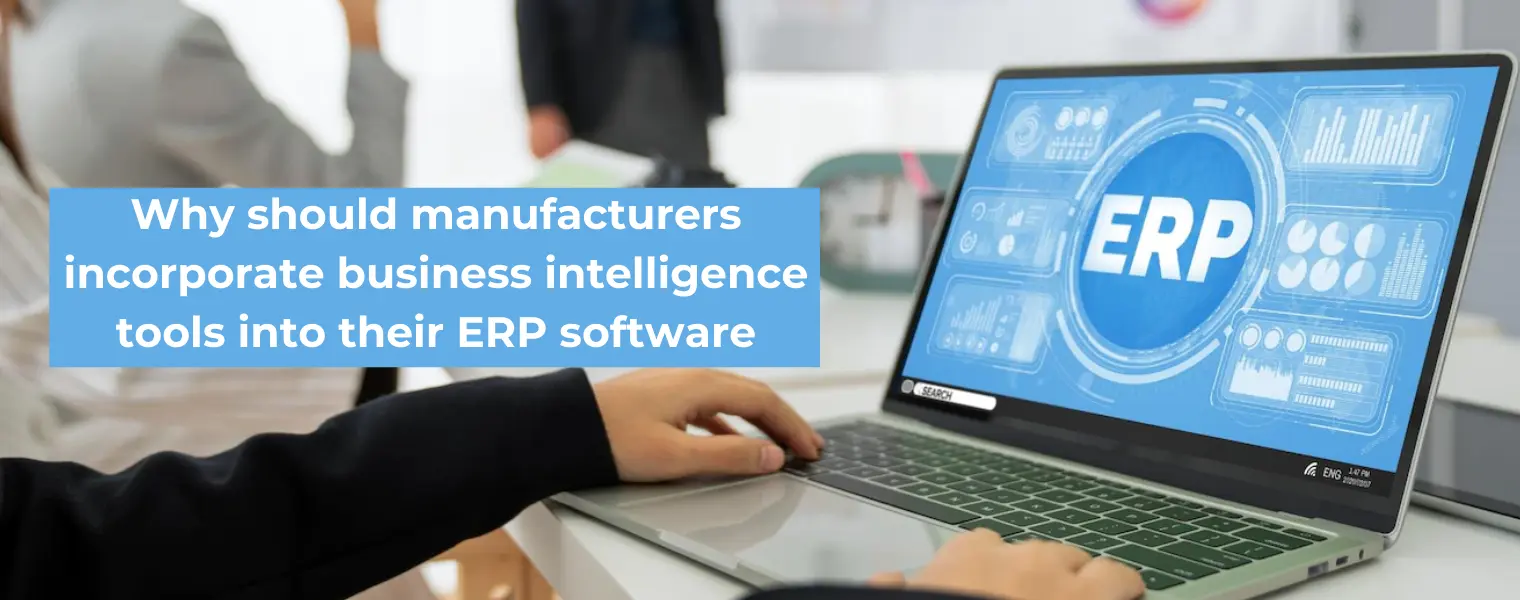
Manufacturers rely on data and their ERP platform to answer critical questions like, "How much inventory do we have?" How much does it cost us to produce this item? Which vendors are causing us problems with component delivery? However, gaining a competitive advantage necessitates more than simply answering the obvious questions. Organizations can use business intelligence (BI) to identify questions they didn't even know to ask — as well as the answers to those questions.
Here's an illustration. Assume you want to know the revenue for a particular product in the specific region. That data is easily accessible, but with BI, you can drill down into the numbers and easily slice the figures in different ways. So, as you look at revenue, you wonder what the margin is, and with a few clicks, you can find out. Surprisingly, revenue has increased in the last month while margin has decreased. That's a question you might not have thought to ask, but you can answer it with BI.
BI has evolved into more than a nice-to-have feature. After all, data is the foundation of digital transformation, and the pandemic accelerated companies' digital transformation plans by three to four years, according to McKinsey. Snowflake (a data warehousing company) went from a startup to a $63 billion company in ten years, demonstrating the mainstreaming of BI and analytics. Snowflake, on the other hand, is intended for large businesses. Snowflake is equivalent to purchasing a Ferrari to drop the kids off at school for the mid-market.
Mid-market manufacturers require a tool that is tailored to their specific requirements. For example, it is common for an organisation to have critical data stored in numerous disconnected silos. The BI tool must be able to easily gather all of this data for analysis. Including additional outside data sources can enhance analysis by allowing one to look at a problem from a more holistic perspective.
ERP is the foundational technology required for manufacturers to collect, analyse, and share insights for supply chain visibility. ERP and business intelligence (BI) both support and inform decision-making. ERP adds operational value by providing businesses with a precise 360-degree view of all systems and functions. The data is then analysed by BI integrated within your ERP system, allowing your organisation to delve deeply into performance metrics and uncover trends that can be used to improve overall business strategies. ERP powered by BI facilitates the generation of a detailed and transparent view from a centralised repository, which improves operations. BI tools integrated into your ERP can extract data from your ERP and load it into a data warehouse using predefined ETL (extract, transform, and load) tools via a web interface. Once the data is in the data warehouse, manufacturers can analyse it using pre-defined templates or easily create their own.
ERP and BI integration bring everything together, allowing manufacturers to consolidate data for clear, actionable insights. Forward-thinking companies should consider shifting from static reporting to predictive modelling powered by Manufacturing ERP-BI integration. In today's digital economy, the ability to spot trends and patterns, anticipate market shifts, and proactively adjust plans are all competitive advantages. DoFort provides the best Manufacturing ERP software with business intelligence tools. Contact us to know more.
Welcome to DoFort !